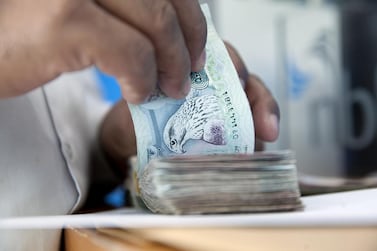I applied for de-registration on February 22 last year and it's been "pending" ever since. I've reached out to the Federal Tax Authority numerous times but still nothing has been resolved. On the e-services page it says I need documentation to prove why I am de-registering but it doesn't say which documents. The reason is due to staff members leaving and the sales revenue of the business going forward would be below the limits for VAT. I've had a fine of Dh5,000 on my account for a while now as I didn't submit a return in 2018 as I was well below the threshold. JG Dubai
You don’t specify if you registered voluntarily or mandatorily, however given the circumstances I assume you registered voluntarily when VAT was introduced at the start of last year.
The rules around de-registration are a little complicated. A person registered under VAT can apply to do this in two circumstances: first if you stop making taxable supplies and do not expect to make any over the next 12-month period. Second, if your taxable supplies or taxable expenses incurred over the last 12 consecutive months is less than the voluntary registration threshold of Dh187,500 and you do not anticipate crossing this threshold in the next 30 days.
However, if you originally voluntarily registered for VAT; you are not allowed to de-register until 12 months have passed. Also, once you have registered, you are obligated to file quarterly VAT returns regardless of your turnover.
You mention your turnover has been below the voluntary registration threshold, but this is irrelevant if you register. Once registered even if your turnover is zero, you must still file quarterly nil VAT returns on the FTA portal within the deadlines. Failing to do so incurs an immediate fine of Dh1,000 for the first offence and Dh2,000 for each subsequent late return or unfiled return. It appears you have now failed to file three returns and have therefore been fined Dh1,000 for the first quarter, Dh2,000 for quarter two and a further Dh2,000 for the third quarter.
Under voluntary registration the earliest you could apply for de-registration is January 1 2019. To de-register, you must first file the missing returns with the correct figures for your taxable turnover and pay the outstanding fines. The fact that you are below the threshold does not mean the returns should be zero. They should reflect your actual taxable business transactions, however small.
You must do three individual returns, one for each quarter that you have missed. Only then will the FTA consider your de-registration request. Also, try to submit a reconsideration form to get the fines reimbursed. It’s probably worth submitting the request but unfortunately I’m not hopeful you would be successful.
This highlights why it’s vitally important to seek professional help if you are not sure that you are complying with legislation. A genuine mistake can prove costly as fines and penalties add up quickly.
I have a freelance supplier who has invoiced me without adding VAT - is this allowed? How do I reflect the invoice in my accounting system? SW Dubai
Small businesses or start-ups whose taxable turnover is below the mandatory VAT registration threshold of Dh375,000 do not need to be VAT registered. A perfectly legal, licensed small business may never need to register, and this is fine. In this case you would expect to be invoiced without any VAT added or mentioned anywhere on their invoices. It is each business's responsibility to register for VAT when they are legally required to do so and as a customer you would not expect to have visibility of total taxable sales. From a personal perspective, if I suspected a supplier should be VAT registered and was not, I would ask them to confirm in writing they are not required to register. If they were unwilling to do that, I wouldn’t work with them.
In terms of accounting, you just input the invoice and code it with zero VAT. You can only offset input VAT where it is supported by a fully compliant tax invoice or receipt. If you know you have been charged VAT but have not retained the invoice or receipt, then unfortunately you should not reclaim the VAT.
Lisa Martin, a chartered accountant with more than 20 years' commercial finance experience, is the founder of accounting, auditing and VAT consultancy, The Counting House. Email any VAT queries to pf@thenational.ae







